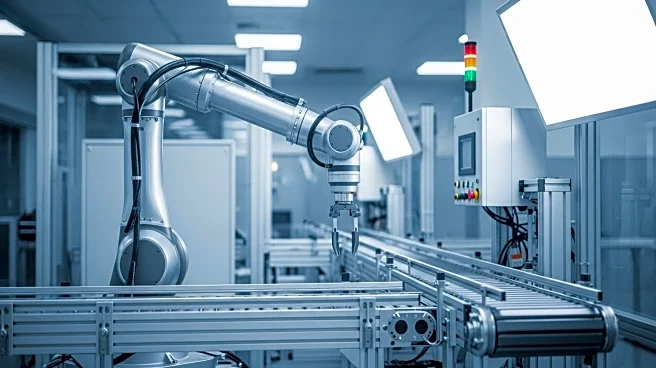What is the story about?
What's Happening?
A recent analysis by Accenture suggests that the integration of artificial intelligence in the manufacturing industry could significantly boost profit margins, potentially increasing them by 38% by 2035. This growth could translate into an economic benefit of up to $14 trillion across various industries and economies. Despite concerns about AI replacing human labor, the report indicates that AI will complement rather than replace human workers, enhancing productivity and efficiency in manufacturing processes.
Why It's Important?
The integration of AI in manufacturing represents a major shift in industrial practices, promising substantial economic growth and increased competitiveness. By enhancing efficiency and reducing costs, AI can help manufacturers meet rising demand and improve product quality. This development is crucial for maintaining the U.S.'s position as a leader in global manufacturing. Workers stand to benefit from improved working conditions and job security, as AI is expected to augment human capabilities rather than replace them.
What's Next?
Manufacturers are likely to increase investments in AI technologies to capitalize on potential profit increases. This may involve retraining workers to operate AI systems and integrating AI into existing processes. Policymakers may need to address regulatory and ethical considerations related to AI use in manufacturing, ensuring that technological advancements do not compromise worker rights or safety. The industry will be watching closely to see how AI integration impacts productivity and economic growth.
Beyond the Headlines
The use of AI in manufacturing raises important ethical and legal questions about data privacy, worker rights, and the potential for job displacement. It also highlights the need for a balanced approach to technological advancement, ensuring that human labor remains integral to industrial processes. Long-term, this could lead to a reevaluation of labor practices and economic policies to accommodate AI-driven growth.















